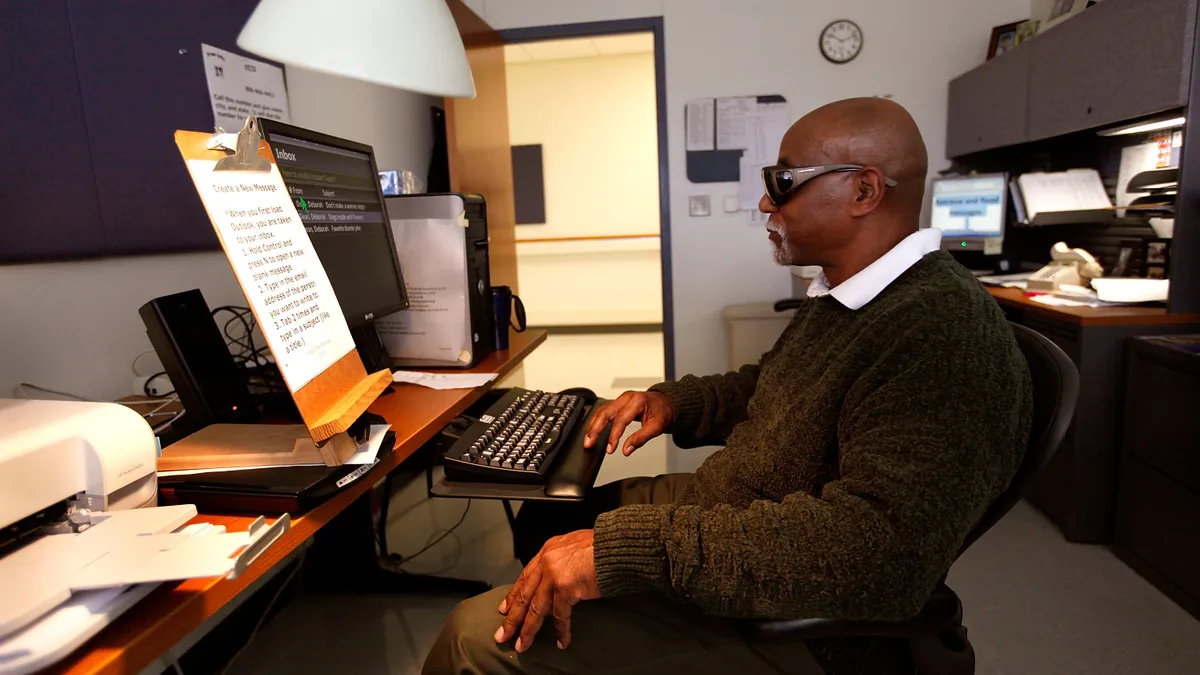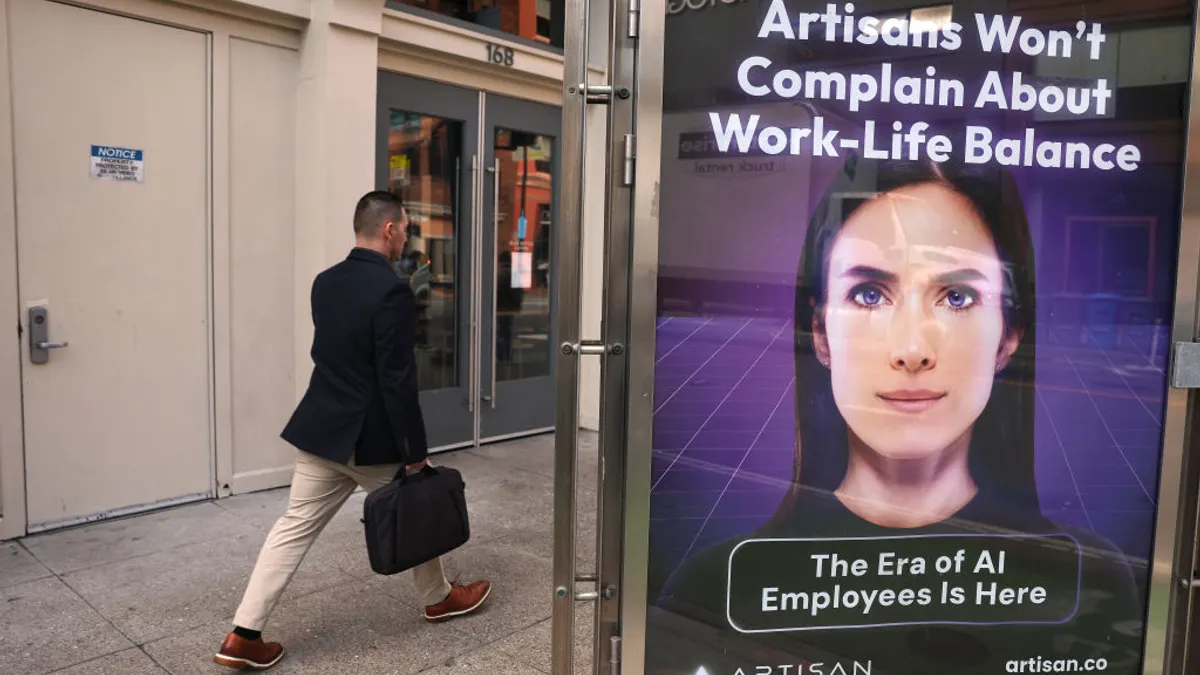For non-disabled people, hiring people with disabilities can be nerve-wracking. As the CEO of Global Disability Inclusion, Meg O'Connell points out, "Historically, companies have viewed people with disabilities as a government problem, a religious problem, a nonprofit problem. 'We'll give to our corporate foundation.'"
Disability rights advocates like O'Connell suggest that, instead of viewing folks with disabilities as disenfranchised from society, non-disabled people can work to include their peers in tangible, innovative ways. Amid the ongoing labor shortage, she asks the question, "What if people with disabilities really are a talent solution? What if we thought of it that way?"
"For the past two years the COVID-19 pandemic has brought disability issues to the forefront in workplace planning," HireVue CHRO Andy Valenzuela told HR Dive via email, echoing O'Connell. "Whether it's accommodations to continue working from home, mask policies in offices, or flex time to get vaccinated, this once-in-a-lifetime event has made HR leaders — myself included — take a much closer look at how existing policies can and should change to be more inclusive and considerate of people with disabilities."
Inclusion at the very start
Often, HR professionals focus on fostering a sense of belonging for workers once they are integrated into a company. But people teams can champion inclusion and accessibility long before an employee goes through onboarding.
"There's the first touch point of the application that has been submitted online. There can be language there that says, 'Do you need any accommodation at all during this process? Here is how the process works,'" O'Connell said. Ditto the recruiter reaching out for the first phone interview or Zoom call, she added. It can be as simple as asking the candidate, "Do you need anything?"
Previously, O'Connell and other advocates spoke to HR Dive regarding the shift away from the formal term "accommodation" to "job aid" or "productivity tool."
"What if people with disabilities really are a talent solution? What if we thought of it that way?"

Meg O'Connell
CEO, Global Disability Inclusion
"When we hear the word accommodation, what people automatically think is, 'OK, it's a long arduous process. It's something that somebody is going to get a legal team involved in. It's going to cost us money,'" Andy Traub, vice president of Allied InclusionWorks, said to HR Dive in an earlier interview.
"And oh, by the way, this person is now, you know, a troublemaker,'" he added. "The ironic part about it is, oftentimes what's in good accommodation for one person is going to be universally applicable to many people."
O'Connell said interview process accommodations should be commonplace, as opposed to a "strange thing to request or ask." In her experience, the real hiccups occur when potential hires need accommodations and companies scramble to meet their needs.
"Recruiting is a numbers game, right? You have a hiring manager that says, 'I want 10 qualified resumes on my desk by Friday that I can review' and the recruiters are cranking through," O'Connell said. "Making calls, looking at all the resumes. And they get somebody in the process that says 'I need an accommodation.' That resume gets set aside. It's, 'I'll figure that out in a second.'"
Recruiters put a pin in that problem and the candidate's application languishes for days, if not weeks or months. "It's just human nature," O'Connell said.
Don't forget neurodiversity
Lately, tips for interviewing neurodiverse candidates have been Global Disability Inclusion's most requested training. For example, O'Connell said, behavioral interviews have a lot of nuances to them that don't translate to people on the autism spectrum.
"If you're not getting what you want or need from a candidate to truly understand their capabilities, and you're asking kind of those behavioral interviewing questions, you're not going to be able to truly assess that candidate," O'Connell explained. "We do a lot of work in helping recruiters and hiring managers switch their style."
In this instance, O'Connell recommends HR pros opt for straightforward interviewing that sticks to the facts.
Prioritizing accessibility in recruiting can be as simple as allowing space between interview questions, instead of bombarding a candidate with two or three questions at once. "Which we can often add on for clarity, but that can cause confusion," she said.
"Have that moment of silence and be comfortable with it," she said. "Because you know, the person on the other end is processing. They may just need five seconds of silence to get it out right."




















